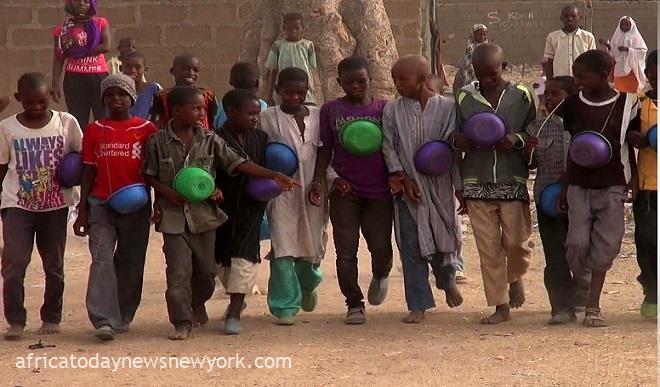Two million out-of-school Almajiri youths are now part of foundational education and Arabic language learning initiatives, as stated by the federal government minister.
At the Citizens and Stakeholders Engagement on Nigerian Education Sector Ministerial Deliverables in Abuja on Tuesday, Minister of Education, Prof. Tahir Mamman, disclosed this development.
Africa Today News, New York, has reported that President Bola Tinubu convened a Cabinet Retreat shortly after assuming office, gathering Ministers, Permanent Secretaries, and key government figures to familiarize them with the intricacies and procedures of his administration.
The overarching aim is to hold Ministries, Departments, and Agencies accountable for achieving the Presidential Priorities articulated in the Renewed Hope Agenda for 2023 – 2027, thereby driving progress and development across sectors.
“To deliver on the mandate of the president, there is need to engage with stakeholders to provide opportunities to critically examine the progress in the implementation of 23 Ministerial Deliverables.
“It is one of the major focus of this administration to reduce the numbers of out-of-school children. While the commission set up to reduce this number, the problem of out-of-school is still ongoing.
“What we reported is the outcome from other agencies of the ministry that are doing their own part to ensure the problem is addressed,” he said.
Regretting the recent kidnap of some students of University of Calabar, he said the ministry is working with security agencies to bring back the students and as well getting TETFund to help fence the university.
Read also: Real Reason Jonathan’s Almajiri Programme Failed – Adamu
Speaking further, the minister said that in months, the ministry had been able to develop guidelines and training manuals for the implementation of inclusive basic education.
According to him, these have helped increased access, enrolment, and retention completion at both basic, secondary, and tertiary school levels.
Corroborating this, the Minister of State for Education, Dr Yusuf Sununu said the ministry deployed technology in education to promote learning as well as promoting skills development and acquisition at all levels.
Sununu said this would address teachers and learning crisis at basic education level
“We quite believe that there is a need for strong team approach in addressing the numerous challenges confronting our education sector.
“Education being a tool for individual, community, country and global development cannot be treated in isolation.
“It was in realisation of this that International Labor Organisation classified education as exportable commodity. By extension therefore, the need for both local and international collaboration becomes a necessity,” he said.
Also speaking , the Lagos State Commissioner for Education, Jamiu Alli-Balogun expressed worry over increment in WAEC fees to N27,000, noting that most parents could not afford to pay such.
He appealed to the federal government to come up with policy on how the fees could be subsidised so as to give Nigerian children quality and affordable education.
On the out-of-school challenges, he said the recent inflow of children from other parts of the country to Lagos state was constituting a problem, saying if not handled could spur more social vices.
Dr. Hammed Abodunrin, at the helm of the National Safe School Response Coordination Centre, stressed the crucial necessity for the nation to address the security of its citizens with utmost seriousness.
Abodunrin stressed the necessity of imparting security knowledge to citizens, indicating the preparedness of the center, alongside the education ministry, to commence security education initiatives within schools.
In his remarks, Dr. Mikayla Ibrahim, Education Adviser of the British High Commission, highlighted that the UK Government has been actively involved in bolstering Nigeria’s basic education, notably through the execution of the GEP III project.
He noted that the GEP project has provided approximately 1.5 million girls with access to education. Additionally, he highlighted the project’s success in enhancing reading and numeracy skills, along with its effective implementation of the Cash Transfer Programme.
Among the goals highlighted in NAN’s report for the ministry are to enhance research and innovation in the education sector, evaluate the status of the technical and vocational education board, and reinforce the education management information system.

